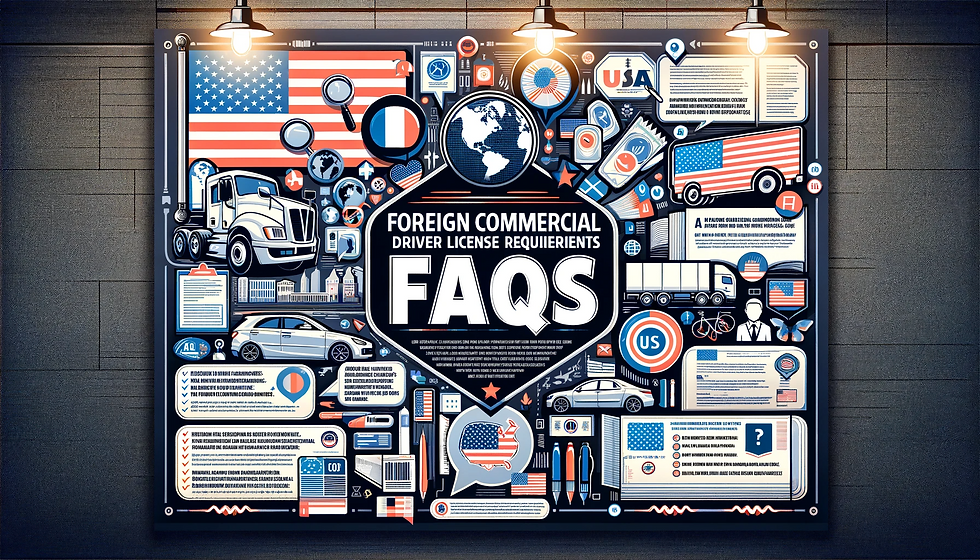
Foreign Commercial Driver License Requirements in the US: FAQs
This document provides answers to frequently asked questions about commercial and non-commercial driver license requirements for foreign drivers operating in the United States.
Commercial Driver Licenses (CDLs)
Which countries have CDL reciprocity with the US?
A1: Only Mexico (federal government) and Canada (provinces and territories) have CDL reciprocity agreements with the US.
Additional Information: In rare cases, temporary waivers or exemptions may be granted for drivers from other countries.
Do drivers residing in Mexico need a US CDL to work for a US company?
A2: No, a valid Mexican SCT (Secretaría de Comunicaciones y Transportes) license is sufficient.
Clarification: Only the federal government-issued Mexican license (Licencia Federal de Conductor) is recognized for reciprocity in the US.
How is a medical restriction indicated on Canadian CDLs?
A3: Some Canadian provinces use code "W" on the license. Check the Canadian Driver's License Reference Guide for details.
Additional Information: Provinces without code W are working towards implementing it.
How is a medical restriction indicated on US CDLs?
A4: Code "V" is used for medical restrictions on US CDLs.
Do US drivers need a TDG (Transportation of Dangerous Goods) certificate for transporting hazardous materials (HM) in Canada?
A5: No, the US CDL HM endorsement is sufficient for transporting HM in Canada.
Non-Commercial Driver Licenses
Do Canadian drivers transporting large tanks need a tank vehicle endorsement on their license?
A6: No, a tank vehicle endorsement is not required for Canadian drivers. However, a TDG certificate is mandatory for transporting HM in a tank in the US.
What proof must Canadian drivers present to transport HM in the US?
A7: Canadian drivers must have a valid Canadian commercial license and a TDG certificate. Transportation of Dangerous Goods (TDG) Certificate:
Mandatory for anyone who handles, offers for transport, or transports dangerous goods in Canada.
Issued by employers after successful completion of TDG training.
Training covers regulations, safety procedures, emergency response, and specific requirements for different dangerous goods classes.

Comments